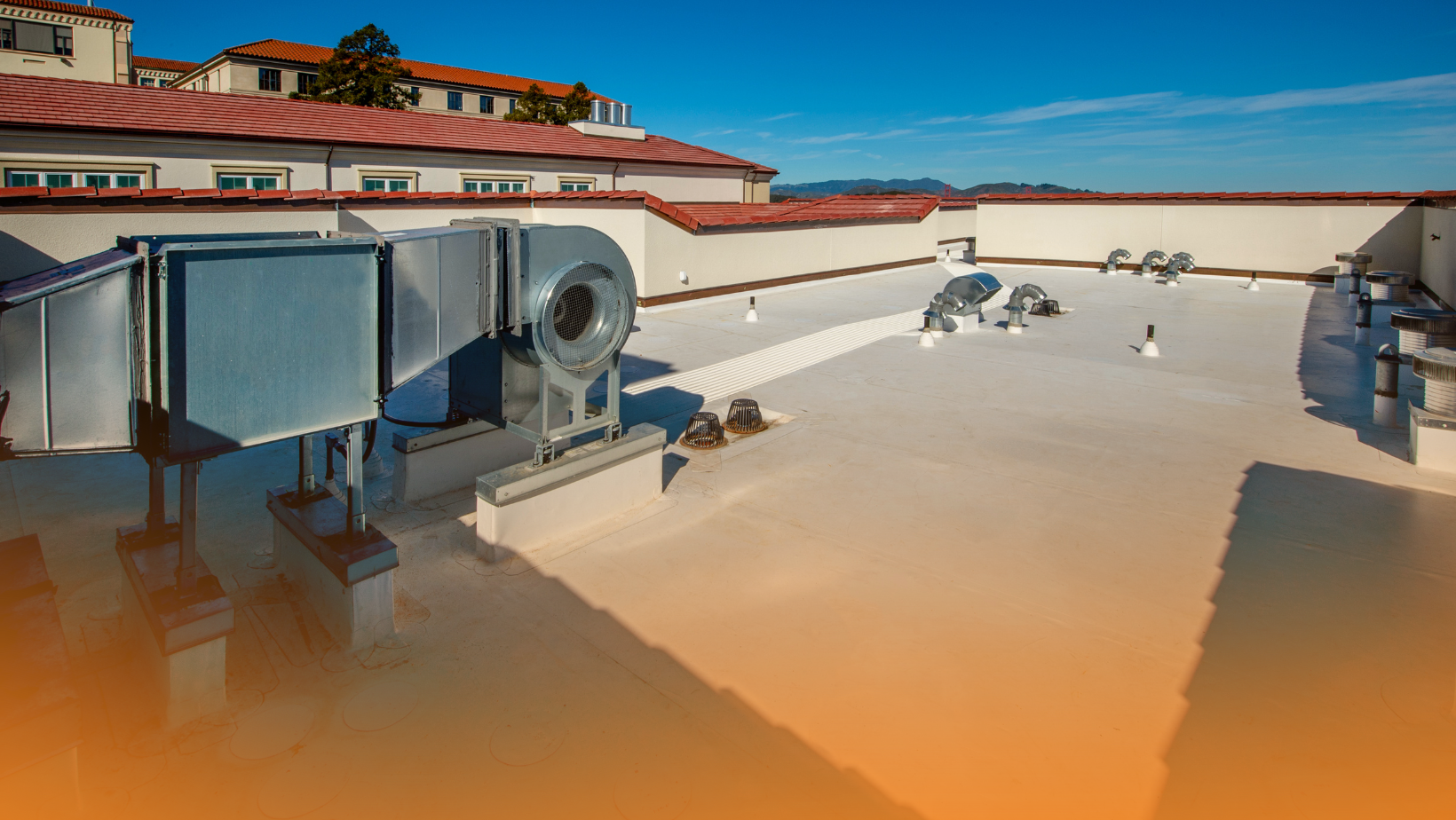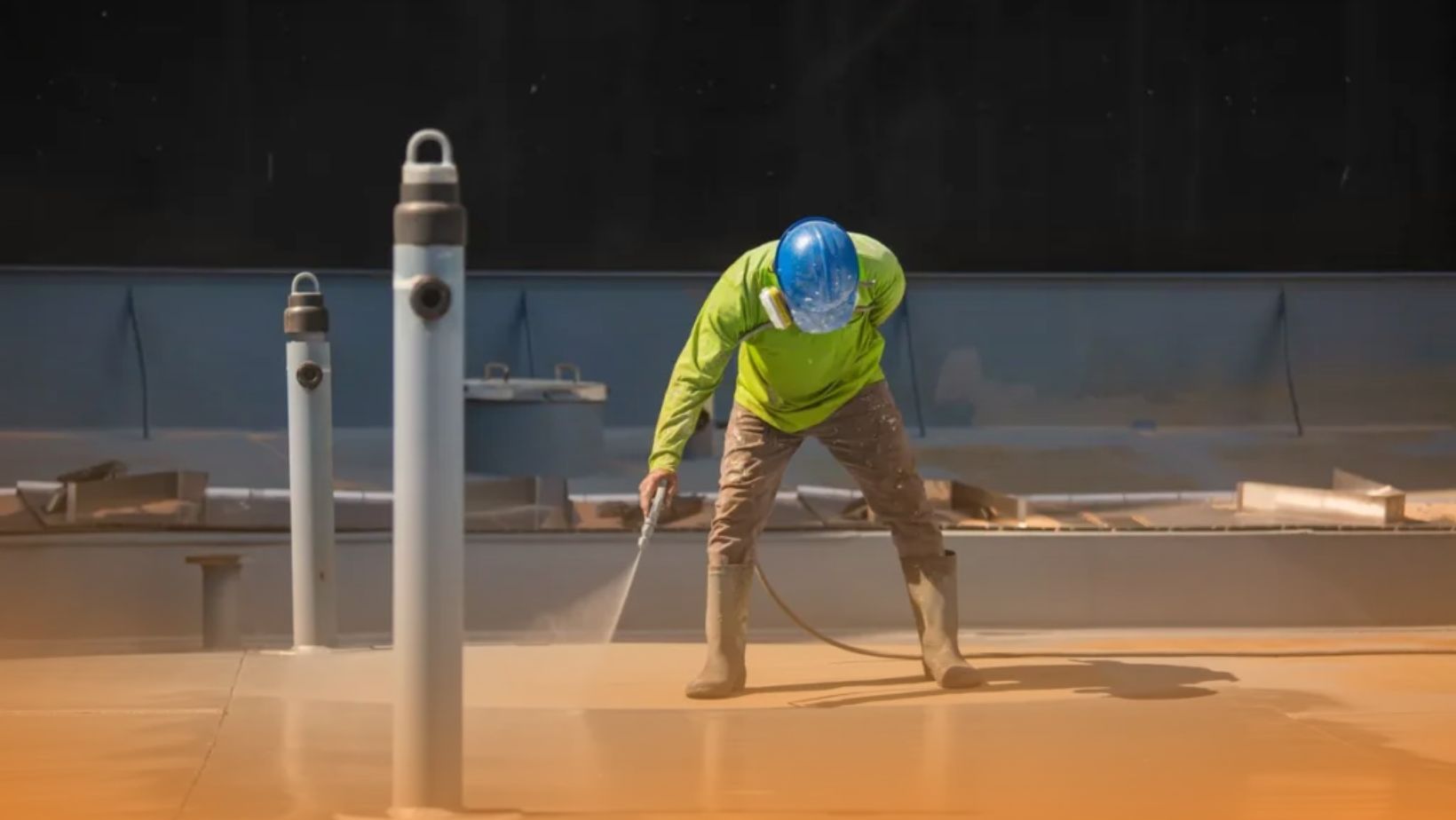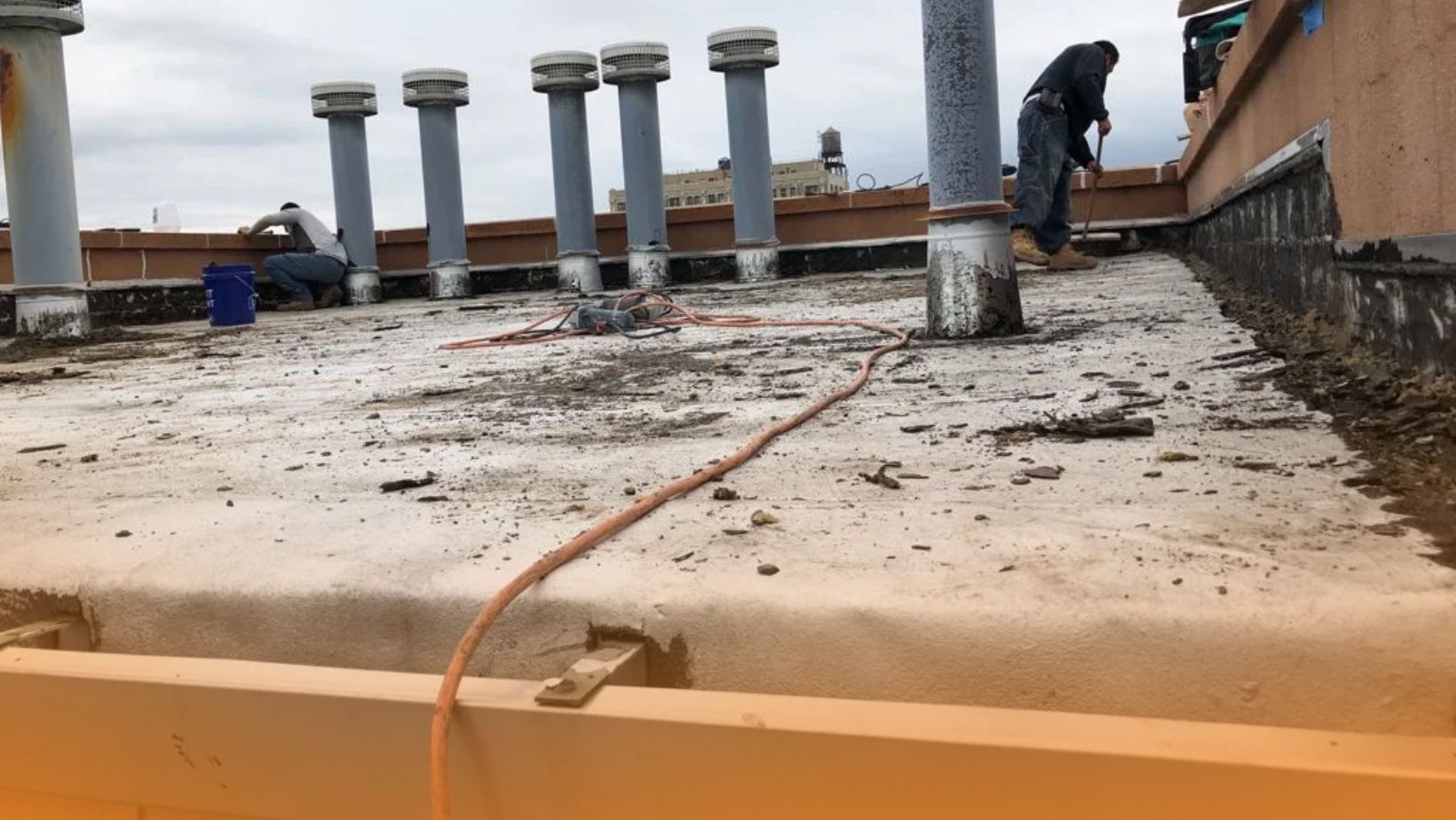1. Introduction
As the summer months approach in Florida, business owners in Tavares know that storm season is just around the corner. From tropical storms to hurricanes, Florida’s weather can pose significant challenges to commercial roofs, and failing to prepare can lead to expensive repairs or even business downtime. That’s why it’s essential to take the proper steps to ensure your commercial roof is ready for the storm season.
In this blog, we’ll walk you through the steps to properly prepare your Tavares commercial roof for Florida’s storm season, keeping it safe from leaks, damage, and costly repairs. We’ll also explore how SmartSeal’s roof coatings can provide the added protection your business needs to weather any storm.
2. Why Florida’s Storm Season is a Concern for Commercial Roofs
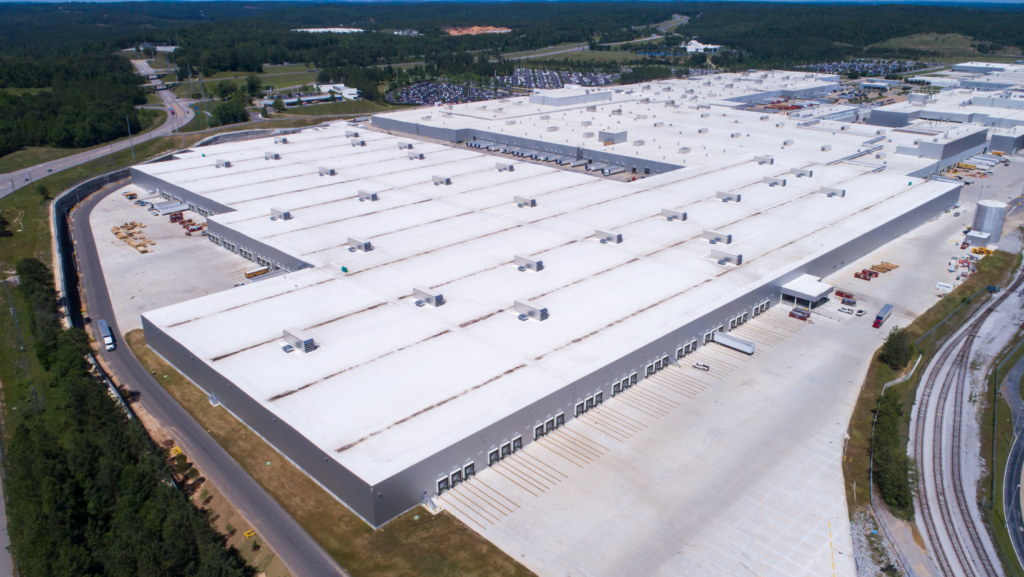
Florida’s storm season typically lasts from June to November, with the peak months being August and September. During this time, the state can experience heavy rainfall, strong winds, and the potential for hurricanes. These conditions can quickly damage commercial roofs if they aren’t properly prepared.
Strong winds can lift shingles, tear off roofing materials, or create gaps and leaks that are difficult to spot until it’s too late. Heavy rains can overwhelm gutters, causing water to pool on the roof and lead to leaks or structural damage. Debris carried by the wind can also damage the surface of the roof, leading to punctures or other types of wear and tear.
Commercial roofs, especially those on flat-roofed buildings, are particularly susceptible to these issues. Proper roof preparation before the storm season can save you from the headaches and expenses that come with storm damage.
3. Common Roof Issues During Storm Season
Before we dive into the preparation process, let’s take a look at some common roof issues that occur during Florida’s storm season:
- Leaks – Heavy rain can find its way through even the smallest gaps or cracks in your roof. Once water starts seeping in, it can cause significant damage to the interior of your building, including ceilings, walls, and insulation.
- Shingle or Membrane Damage – High winds can rip shingles off traditional roofing systems or damage flat roof membranes. If these materials aren’t secure, they can create weak spots that are more susceptible to water infiltration.
- Clogged Gutters – Storms can carry debris like leaves, branches, and dirt that clog gutters and downspouts. This can cause water to back up, leading to pooling on the roof, which can cause leaks and long-term damage.
- Damaged Flashing – Flashing, the metal strips that seal joints and edges of a roof, can be compromised during high winds or heavy rainfall. Damaged flashing can lead to leaks in vulnerable areas like roof valleys and around vents.
4. Steps to Prepare Your Roof for Florida’s Storm Season
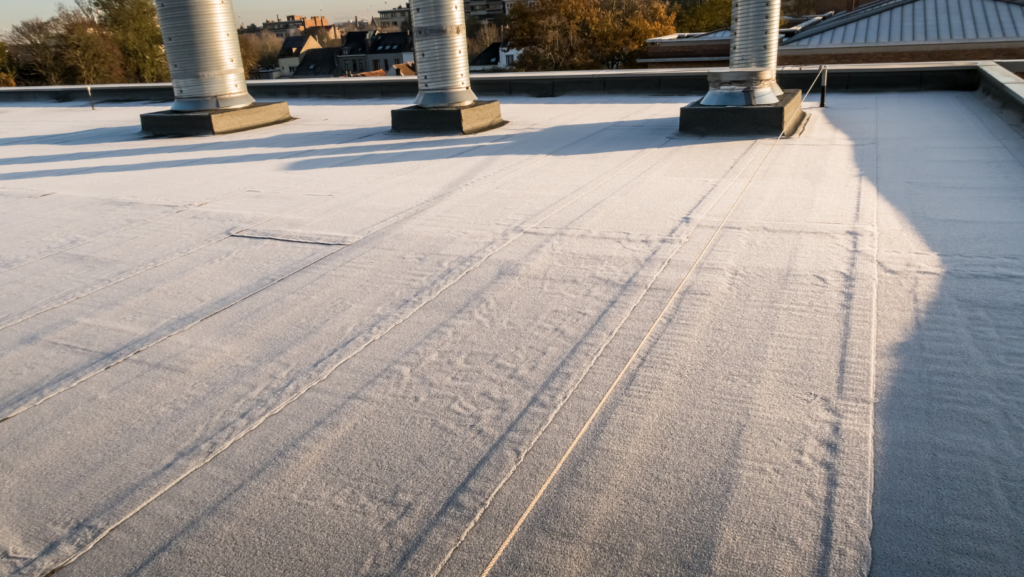
Here are the essential steps you can take to prepare your commercial roof for Florida’s storm season:
1. Inspect Your Roof Regularly
One of the most important things you can do to protect your roof is to schedule regular inspections. Make sure to check for any visible damage, such as loose shingles or worn-out flashing. Look for debris, mold, or algae, which can indicate moisture accumulation. An early inspection gives you a chance to address minor issues before they become significant problems during the storm season.
At SmartSeal, we recommend having a professional roofing contractor perform a thorough inspection before storm season begins. A professional will be able to identify underlying issues that you might miss and provide expert recommendations for repairs or maintenance.
2. Clear Debris and Trim Trees
Florida’s storms often come with high winds that can carry debris onto your roof. Leaves, branches, and other debris can accumulate on your roof, leading to clogs in your gutters or creating blockages that trap water on the roof. If left unchecked, debris can also scratch or damage the roof’s surface.
Take the time to clear off any debris from the roof, especially after a storm or heavy winds. Additionally, trimming back any overhanging branches from nearby trees can prevent them from falling onto your roof during a storm and causing damage.
3. Strengthen Roof Flashing and Seals
Flashing is one of the most vulnerable areas of your roof. Flashing protects seams, joints, and openings such as chimneys and vents. During a storm, flashing can become loosened or torn, leading to leaks. Before the storm season starts, make sure to inspect your flashing and sealant. Replace any worn-out or damaged flashing to ensure that it remains secure throughout the storm season.
4. Apply a Durable Roof Coating
One of the best ways to protect your commercial roof from storm damage is by applying a durable roof coating like SmartSeal’s commercial roof coatings. A high-quality roof coating creates a seamless barrier that can prevent leaks, reduce the impact of UV rays, and protect against water damage caused by heavy rain.
SmartSeal’s roof coatings are designed to withstand Florida’s extreme weather conditions. They provide excellent waterproofing, which helps prevent water from pooling on the roof and leaking into your building. Additionally, roof coatings help extend the lifespan of your roof, offering long-term protection that can save you money on repairs and replacements.
5. Check Gutters and Downspouts
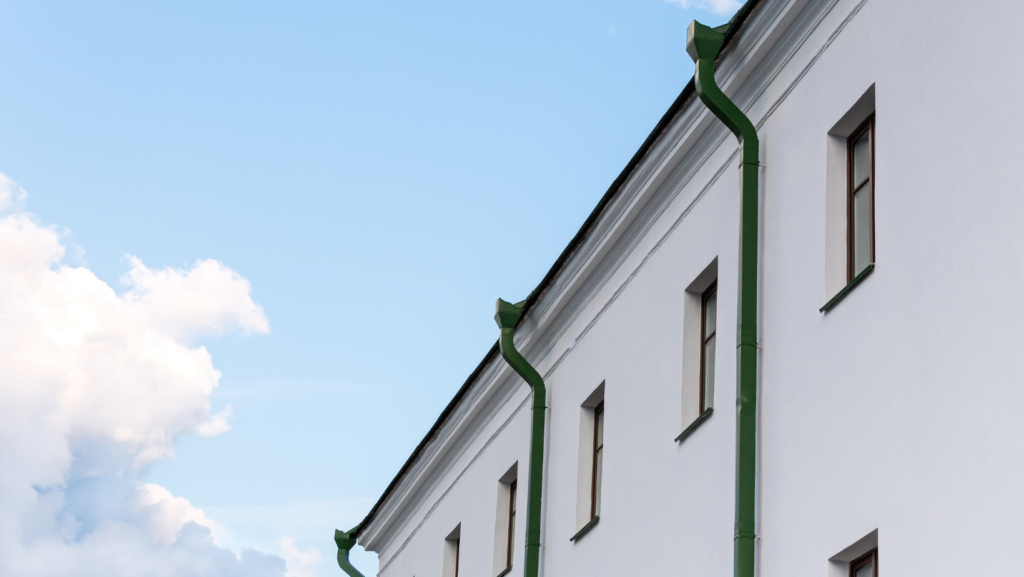
Clogged gutters and downspouts are a common cause of roof damage during storm season. When gutters are clogged, water has nowhere to go but onto the roof, causing pooling that can lead to leaks. Clean your gutters before storm season begins and make sure they are free of debris. If your gutters are old or damaged, consider replacing them to ensure proper water flow.
Make sure downspouts are clear and direct water away from your building’s foundation. Water that pools around the base of your building can cause structural damage if not properly redirected.
6. Prepare Your Roof for High Winds
Wind is one of the most dangerous forces during a Florida storm. To prevent wind damage, check the condition of your roof’s materials. Make sure that shingles, membranes, or tiles are securely fastened. If you have a flat roof, ensure that the roof membrane is properly sealed and not loose or damaged.
In some cases, additional reinforcements may be necessary to prevent wind uplift. This could include adding additional fasteners or anchors to the roof or installing a secondary layer of protection.
5. How SmartSeal Can Help Protect Your Commercial Roof
SmartSeal offers a range of durable, cost-effective solutions designed to protect commercial roofs throughout Florida’s storm season. Our roof coatings are specifically formulated to withstand the harsh conditions of Florida’s climate, including heavy rainfall, strong winds, and intense UV exposure.
SmartSeal’s coatings form a seamless, waterproof barrier that helps prevent leaks, extends the lifespan of your roof, and reduces the need for costly repairs. With our 50-year guarantee, you can have peace of mind knowing that your commercial roof will be well-protected for many years to come.
In addition to roof coatings, SmartSeal offers professional inspection, maintenance, and repair services to ensure your roof is in optimal condition before storm season begins.
6. Conclusion
Florida’s storm season poses significant risks to commercial roofs, but with the right preparation, you can minimize the impact and ensure that your roof is ready to handle whatever comes its way. Regular inspections, debris removal, and applying a high-quality roof coating like SmartSeal are all key steps in safeguarding your Tavares commercial roof.
At SmartSeal, we understand the unique challenges that Florida businesses face when it comes to roof protection. Our durable, affordable roof coatings provide long-lasting protection against leaks, water damage, and wear and tear caused by the storm season.
Contact SmartSeal for Storm Season Protection
Don’t wait until the next storm hits—protect your commercial roof today with SmartSeal’s durable roof coatings and expert services. Contact us now to schedule an inspection or to learn more about how our solutions can help prepare your roof for Florida’s storm season.

